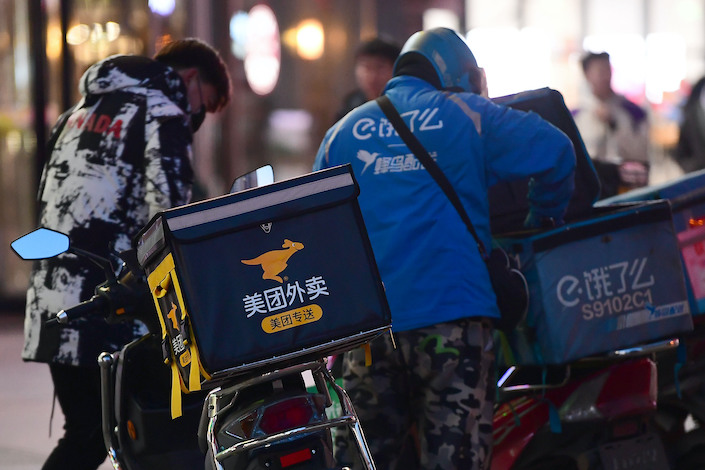China Drafts New Guidelines to Rein in Internet Platforms

Just a day before Singles’ Day, China’s massive Nov. 11 annual online shopping festival, market regulators issued draft rules aiming to prevent monopolistic practices in internet platforms’ economic activities.
The proposed regulations, part of a series of measures the State Administration of Market Regulation plans to unveil to regulate online economic development, followed a meeting Friday of the market regulator, internet regulator and the State Taxation Administration.
China is making major revisions to its antitrust law for the first time in 12 years to give it more teeth while reining in the dominance of the country’s internet goliaths. A draft revision of China’s Anti-Monopoly Law expands on criteria used to judge a company’s control of a market and mentions internet companies for the first time.
At the meeting Friday, the regulators made clear that internet platforms should not abuse their dominant position to force merchants to choose between platforms. The authorities said they will investigate a number of violations and will issue a series of regulations after the Singles’ Day shopping event.
The market regulator said the rules aim to stop monopolistic practices in internet platforms’ economic activity, lower compliance costs for law enforcement and business operators, enhance and improve antitrust regulation of the platform economy, protect market fairness, ensure the interests of consumers and society, and encourage the healthy and continuous development of the platform economy.
With the booming internet economy, large platforms in social networking, e-commerce, travel booking and food delivery have accumulated millions of merchants and hundreds of millions of consumers. Major players such as Alibaba, JD.com, Pinduoduo, Meituan and Tencent have been accused of unfair competitive practices.
In August, Alibaba-owned food delivery service Ele.me accused rival Meituan Dianping of telling restaurants that to appear on the Meituan app businesses would have to end any collaboration with Ele.me. The Alibaba unit demanded 1 million yuan ($143,900) in damages.
In the turf battle between Alibaba and Tencent in the booming cloud infrastructure, market entrants find themselves forced to pick a side, seeking investment from one or the other, or sometimes both.
No internet company has been penalized for violating China’s Anti-Monopoly Law, partly because it’s not easy to determine whether a player abuses its dominant market position in the new economy, said Hou Liyang, a legal professor at Shanghai Jiao Tong University.
“In a rapidly changing market, the competition pattern is changing all the time,” Hou said. “Even during the process of an antimonopoly investigation, the subject may lose its dominant market position.”
Contact reporter Denise Jia (huijuanjia@caixin.com) and editor Bob Simison (bobsimison@caixin.com).
Download our app to receive breaking news alerts and read the news on the go.

- PODCAST
- MOST POPULAR






